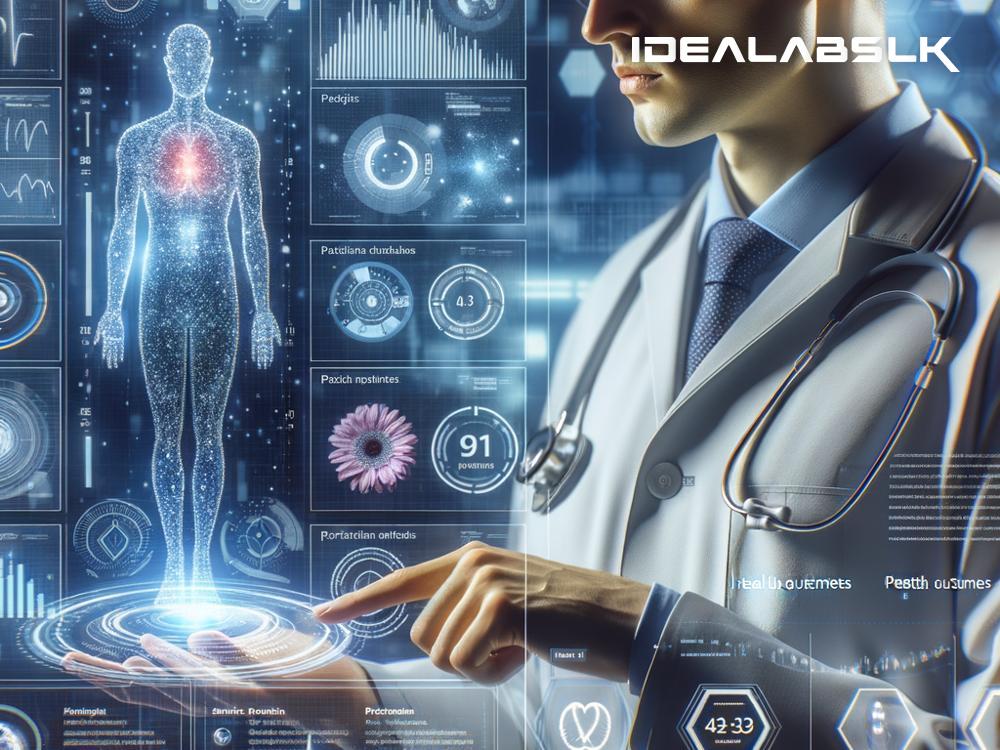The Future of Healthcare: Unveiling How Predictive AI is Revolutionizing Digital Health Platforms
Imagine waking up in the morning, and before you even think about your health, your phone notifies you about your vitamin D levels being a bit low or reminding you to drink more water based on your activity levels from the previous day. This isn't a scene from a sci-fi movie. It's the reality of how predictive artificial intelligence (AI) is transforming digital health platforms, making personal health management a seamless part of our everyday lives.
But, what is predictive AI, and how is it making such personalized health notifications possible? Let's dive into the fascinating world of predictive AI in digital health platforms, explained in simple English for everyone to grasp.
What is Predictive AI?
Predictive AI is a branch of artificial intelligence that learns from historical data to make predictions about future events or outcomes. It’s like a weather forecast, but instead of predicting the weather, it predicts health-related outcomes. By analyzing vast amounts of health data from various sources, predictive AI can identify patterns and make informed guesses about an individual’s health risks, needs, or the effectiveness of a treatment plan.
How Predictive AI Works in Digital Health Platforms
-
Data Collection: The foundation of any AI system, including predictive AI, is data. In the context of digital health platforms, this data can come from multiple sources such as electronic health records (EHRs), wearable devices, and even genetic information. Every heartbeat, step taken, hour of sleep, and change in body temperature contributes to this pool of data, making the predictions more accurate and personalized over time.
-
Learning from Data: Once the data is collected, the real magic begins. Through a process known as machine learning, predictive AI algorithms analyze and learn from the data. They look for patterns, correlations, and trends. For instance, the AI might learn from the data that individuals who take a certain number of steps daily tend to have lower blood pressure levels.
-
Making Predictions: Armed with the knowledge gained from past data, the predictive AI can then make educated guesses about future health outcomes. It could predict, for example, which individuals are at a higher risk of developing a chronic condition based on their lifestyle, genetic predisposition, and environmental factors.
-
Proactive Health Management: The ultimate goal of predictive AI in digital health platforms is not just to predict health outcomes but to empower users with this knowledge. By alerting them to potential health risks, individuals can take proactive steps to manage their health. This could range from personalized diet and fitness recommendations to reminders for medication or to schedule a check-up with a healthcare provider.
The Benefits of Predictive AI in Digital Health
The implementation of predictive AI in digital health platforms offers several transformative benefits:
-
Personalized Healthcare: Every individual is unique, and so are their health needs. Predictive AI enables hyper-personalized healthcare experiences by considering the unique health profile of each user.
-
Early Detection and Prevention: By predicting potential health issues before they become serious, predictive AI allows for early intervention, significantly improving the chances of prevention and successful treatment.
-
Efficient Healthcare Delivery: For healthcare providers, predictive AI can help prioritize patient care, predict patient admission rates, and manage resources more effectively, leading to better healthcare outcomes and reduced costs.
-
Empowering Individuals: With insights about their health at their fingertips, individuals are better equipped to make informed decisions about their health, leading to improved health literacy and engagement in their well-being.
The Road Ahead
While the potential of predictive AI in digital health is vast, it is not without challenges. Concerns around data privacy, the need for substantial clinical validation, and the risk of reinforcing healthcare inequalities are issues that need addressing as this technology continues to evolve.
However, with continued advancements in AI and a growing emphasis on patient-centric healthcare, the future of predictive AI in digital health looks promising. A future where healthcare is not just reactive but is predictive and personalized, enabling individuals to lead healthier lives.
Predictive AI in digital health platforms is more than just a technological innovation; it's a new paradigm in healthcare that empowers both individuals and healthcare providers alike. By leveraging the power of predictive analytics, we are on the cusp of a healthcare revolution—one that makes proactive, personalized, and efficient healthcare a reality for all.

